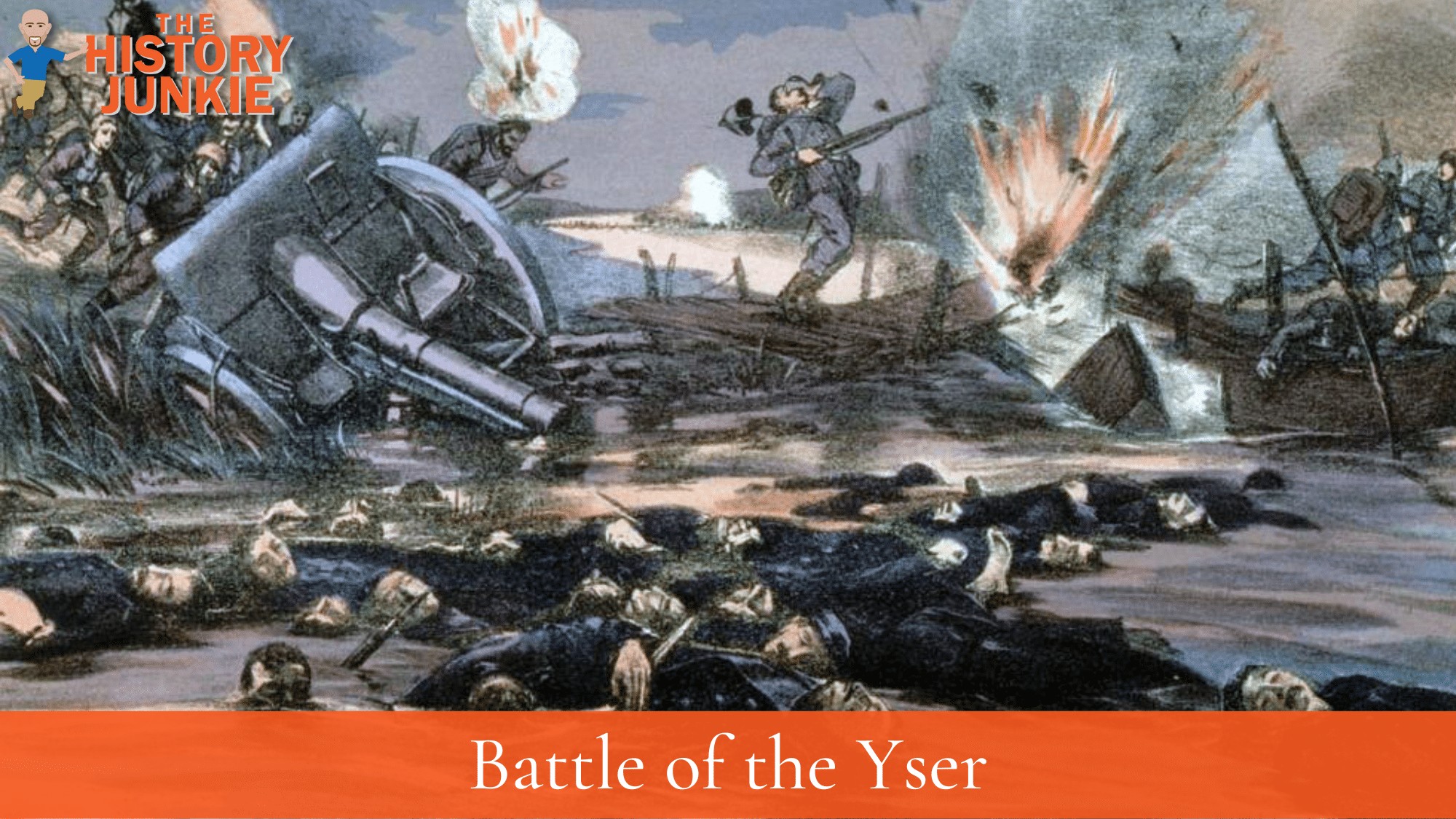The Belgian army's defense of the Yser Canal in October 1914 is referred to as the Battle of Yser. The German offensive at the Canal, which ran south from the English Channel at Nieuwpoort in north-western Belgium, formed part of a wider battle for control of Flanders, notably at Ypres.

The land surrounding the River Yser, which formed a natural obstacle to the German advance, was woven through with a network of drainage canals; the area itself is made up of 'polder,' or reclaimed land.
The water level was situated just below the surface and was regulated by the canals and their associated network of sluices and pumps.
The head of the drainage system was at Nieuwpoort, where the Yser met the sea and where several other major canals joined.
German Advance
The German Fourth Army, operating under Duke Albrecht, began attacking Belgian forces deployed along the Canal on October 18, with a heavy bombardment all along the Belgian lines.
See Article: What Was The Schlieffen Plan?
With the aid of British warships lying off the coast, the Belgians managed to repel the German advance, the latter temporarily withdrawing to Oostende, having unsuccessfully tried to torpedo the warships.
Following repeated attacks over the following four days, a German division managed to form a bridgehead at Tervaete after a small band of troops managed to quietly cross a temporary footbridge over the Canal on October 22 without having fired a shot.
This success forced the Belgians to retreat to the Diksmuide-Nieuwpoort railway on October 24. Whilst there, they received reinforcements from the French 42nd division.
At Diksmuide itself, twelve miles south of Nieuwpoort, half of the 6,500 French navy troops, the Marins Fusiliers, stationed under the command of Admiral Ronarc'h, suffered casualties or losses.
Since Diksmuide formed a bridgehead to the eastern side of the canal, its retention was of great importance.
With Belgian resistance weakening and the King, Albert I, fearing a German breakthrough in the direction of Dunkirk and Calais, the Belgians took the drastic step of opening the Canal locks at Nieuwpoort on October 25.
The result was a gradual flooding of the low country between the Canal and the railway. Consequently, the German Fourth Army was obliged to retreat on October 29, transferring its offensive effort to Ypres.
Diksmuide fell to the Germans on November 10, but Nieuwpoort remained in Belgian hands throughout the war.
Result: Allied Victory
